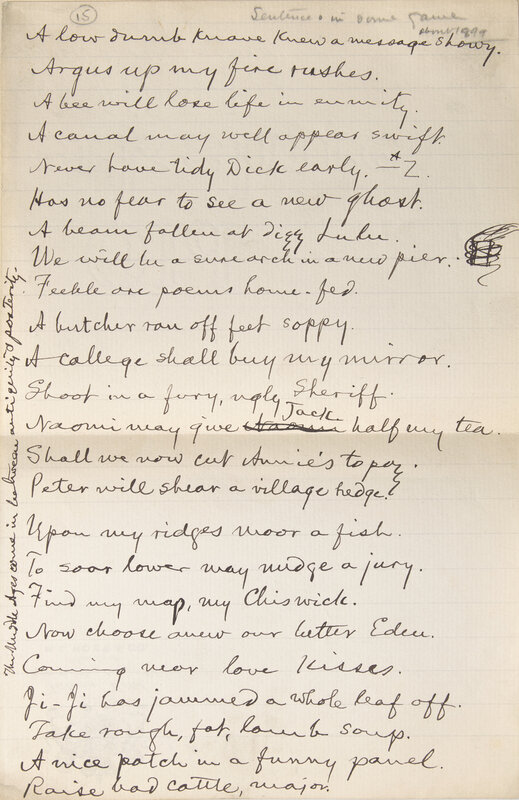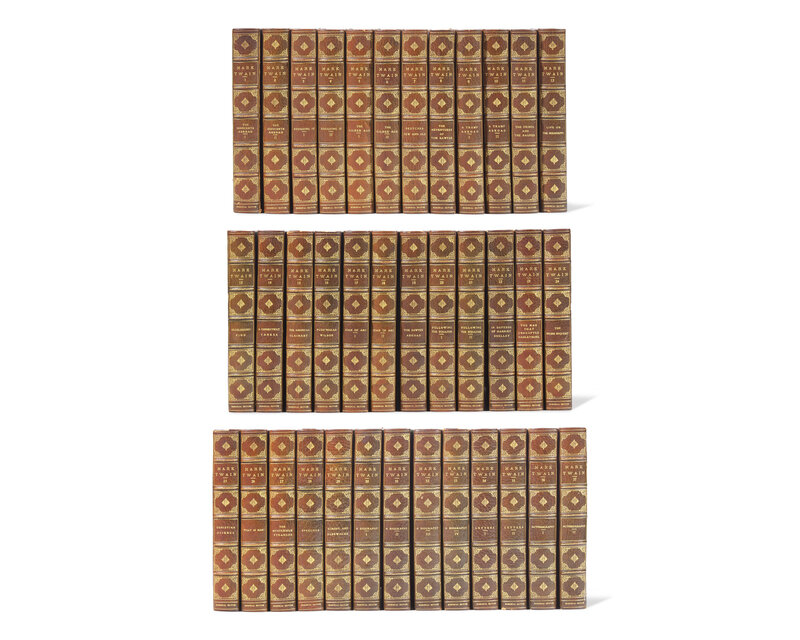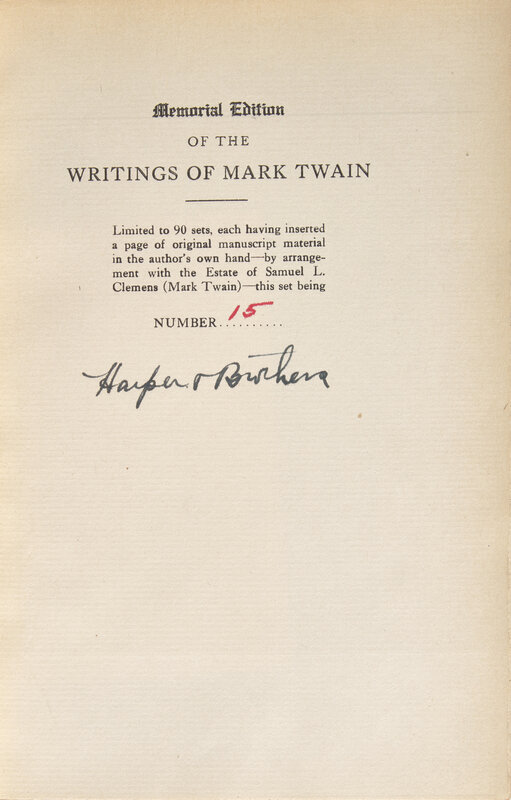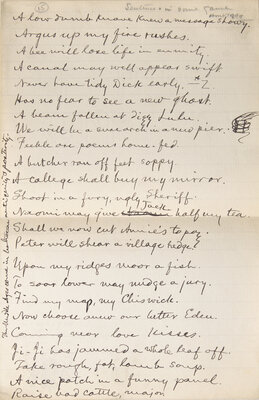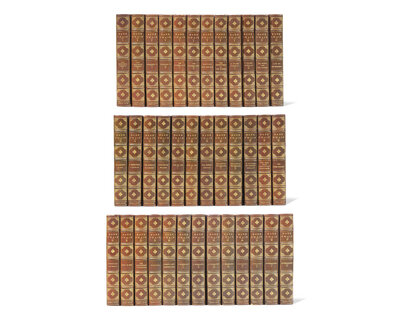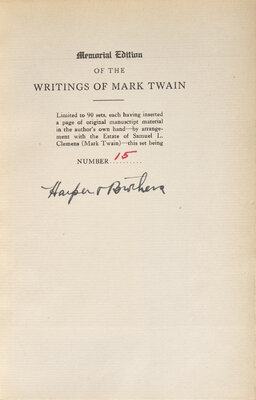Lot 106
[Literature] Twain, Mark (Clemens, Samuel L.). The Writings of Mark Twain. With Autograph Manuscript Leaf
Sale 2101 - Books and Manuscripts
Sep 10, 2024
10:00AM ET
Live / Philadelphia
Own a similar item?
Estimate
$6,000 -
9,000
Price Realized
$8,255
Sold prices are inclusive of Buyer’s Premium
Lot Description
[Literature] Twain, Mark (Clemens, Samuel L.). The Writings of Mark Twain
New York and London: Harper & Brothers, 1929. In 37 volumes. The Memorial Edition, #15/90 numbered sets, signed by the publisher and with an original one-page autograph manuscript leaf by Twain tipped-in to first volume. Each volume illustrated with frontispiece and numerous plates. Contemporary three-quarter green levant over green linen-covered boards, stamped in gilt, spines browned, joints and extremities rubbed; top edges gilt, other edges untrimmed; marbled endpapers; ownership signature ("Polk") on front blank of each volume; fore-edge of pp. 19/20 in eighth volume torn away but present, just affecting some text.
Includes a printed broadside for a November 13, 1884 public reading by Twain, at the Boston Music Hall, laid in to first volume.
A handsome set of the Memorial Edition of the collected writings of Mark Twain. Containing an original autograph manuscript leaf (likely ca. 1887-88), completely in the hand of Twain, and comprising 25 lines of text, being an exercise from a work by "memory doctor" Professor Alphonse Loisette (aka Marcus Dwight Larrowe).
Despite Mark Twain's renown as a public speaker, he was known to have had a notoriously poor memory. Throughout his life he sought ways to improve his recollection. This manuscript leaf is evidence of one popular course he took, and whose initial enthusiasm for he quickly came to regret.
In 1887, Twain was introduced to the work of Professor Loisette, who offered courses to improve one's memory through his Loisettian School of Physiological Memory. For a fee and a contractual oath of secrecy, Loisette offered courses that promised "the Instantaneous Art of Never Forgetting". The coursework, which claimed to reveal the laws of memory, was complex, as can be seen in Twain's manuscript here, which consists of nonsensical strings of sentences that were to be translated through a cypher provided by Loisette. As part of an exercise on "Recollective Anaylsis", the lesson ascribed numerical values to consonants, and that upon mastery could aid the student in quick recall. Twain was at first impressed with the results of Loisette's courses, and wrote glowing letters of recommendation, exclaiming that "Loisette doesn't make memories, he furnishes confidence in memories that already exist." Loisette would go on to publish Twain's words in ads and brochures promoting his school, and which greatly increased his membership, and profits.
Only a year later, in 1888, Twain's esteem for the Loisette system soured, following the publication of George S. Fellows's Losiette Exposed. Fellows accused Loisette of plagiarizing his memory system, excoriated him for his exorbitant membership fees and contractual terms that bound its students to complete secrecy, and revealed that he invented his degree as well as his name. Furthermore, the book printed Loisette's complete course system, claiming there was no copyright, as well as reports of the profits Loisette had reaped. Most embarrassingly for Twain, Fellow also published some of Twain's own words of recommendation. Following the scandal Twain distanced himself from Loisette and his school, and asked him to stop using his words in promotional material.
Despite being duped by Loisette, Twain would continue to find ways to improve his recollection, and in 1891, he produced a prototype called Mark Twain's Memory Builder. Unfortunately for him, there was little interest, and it was never commercially produced.
This lot is located in Philadelphia.
Condition Report
Contact Information
Auction Specialist
